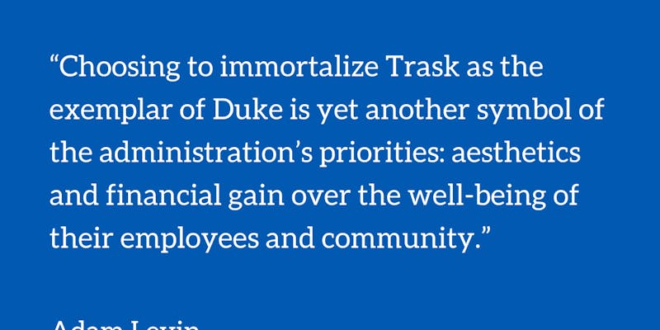Duke University’s recognition of John Trask with the University Medal has sparked debate about how the institution interprets his legacy. While Duke administration sees the award as a tribute to Trask’s contributions, not everyone agrees with this perspective. Critics argue that honoring Trask, who has a complex and controversial historical background, demonstrates a troubling approach to legacy and accountability at the university. They assert that Duke might be overlooking the broader implications of Trask’s actions and their impact on marginalized communities. This situation underscores the tension between celebrating historical figures for their achievements and grappling with the moral complexities of their legacies. The decision to award Trask raises questions about whose contributions are valued and why, spotlighting the need for a more nuanced understanding of history that considers both accomplishments and ethical considerations. This ongoing discussion challenges the university to reflect on its values and the implications of its recognition choices, emphasizing the importance of contextualizing historical figures within the framework of social justice and equity. Ultimately, the division in perspectives about Trask’s legacy reflects a broader dialogue about accountability and the narratives that institutions choose to endorse in shaping their own identity and mission.
Read this related Trek here:
Is Tallman Trask What Duke Stands For?

 Trek.pub Trekking around the net
Trek.pub Trekking around the net



